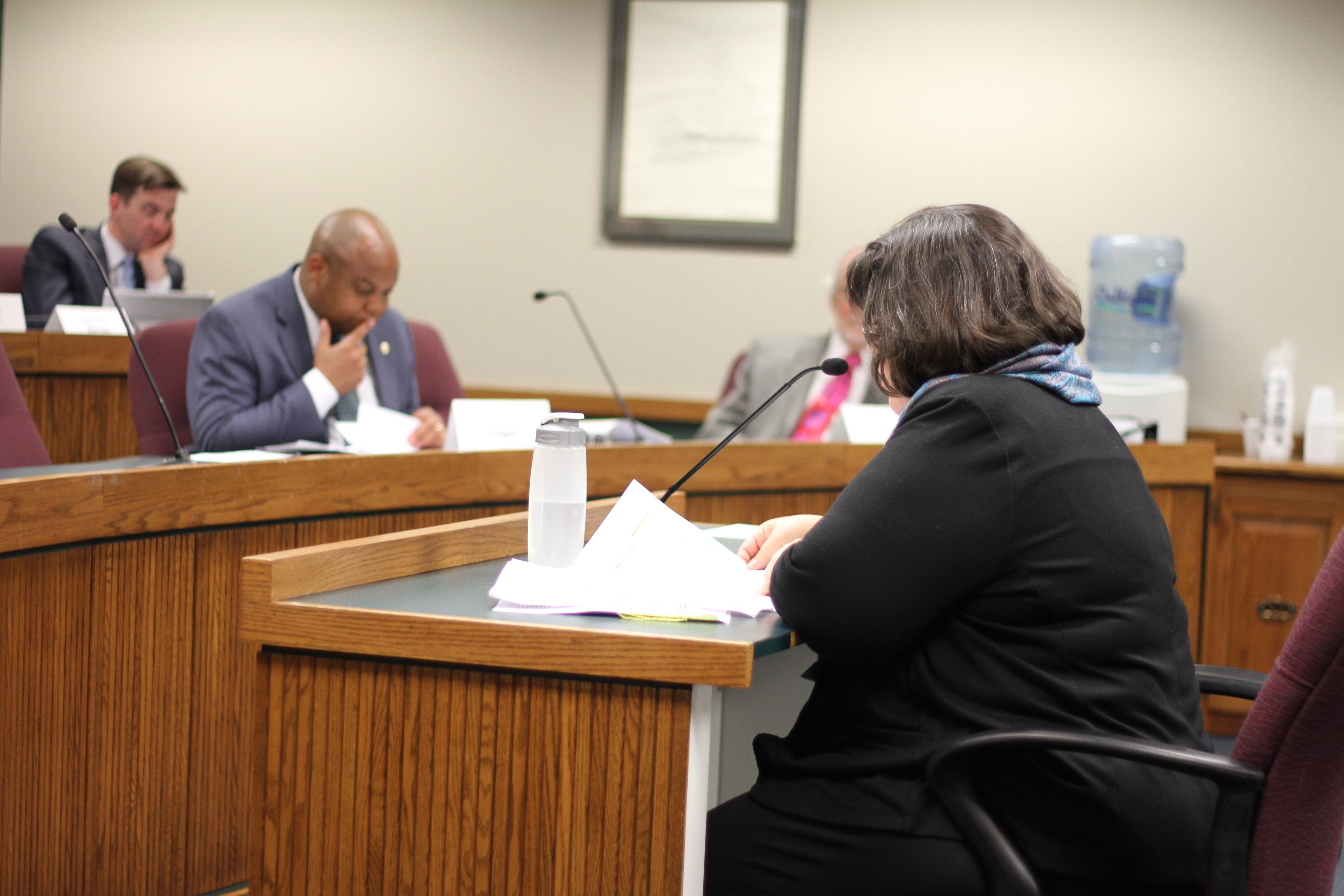JEFFERSON CITY, Mo. — Missourians from across the state came to Jefferson City to share their stories, their experiences, and their recommendations on the complicated issue of charter schools.
“Everyone in this room today is here because they care about kids and they want the best for kids,” said Bill Nicely, superintendent of the Kearney School District.
Some had deeply personal and emotional stories they shared while others focused more on data and numbers. In the span of a three-hour-long hearing, the House Elementary and Secondary Education Committee heard droves of testimony from nearly every perspective regarding Rep. Rebecca Roeber’s bill.
“Almost 60,000 students will be in attendance in a public charter school in Missouri. All of these students are there because their parents chose for them to be there. Nobody is ever forced to attend a charter school,” said Roeber. “When [public schools] are not working for kids, families should have other options.”
Her bill is aimed at expanding the options in which Missouri students have for getting an education. HB 581 proposes expanding where charter schools can be established and restricts a political subdivision from limiting a charter school’s ability to acquire property.
The bill expands where a charter school may be established to include any county with a charter form of government, any city with a population greater than 30,000, or any school district accredited without provisions.
With community support, any school district would be able to establish a charter school, as long as the school board of the district approves and agrees to act as the sponsor. If the school board denies a proposal, the charter school may appeal to the Missouri Charter Public School Commission which may approve and sponsor the charter school if sufficient community support exists.
Charter schools have been underperforming for three of five years seeking accreditation renewal will receive a three-year charter under the bill. If the school again fails to meet the standard for two years of the three-year term, the school’s charter shall not be renewed.
Under the proposed legislation, a nonresident student may enroll in a charter school as long as it does not cause a resident student to be denied admission.
The commission, established in 2012 to oversee and act as sponsor to some charter schools, testified in favor of the bill.
Robbyn Wahby, executive director of the Missouri Charter Public School Commission, testified that those at the commission don’t view the debate between tradition and charter schools as a “culture war” because they “all believe every child deserves a good education.”
In their role, the commission uses well-researched methods and practices. Wahby pointed out that their job is to work for taxpayers in Missouri.
“We are not trying to put anyone out of business…we have rejected more charter school applications than approved,” said Robbyn Wahby, Executive Director of the Missouri Charter Public School Commission.
An educator in the St. Louis area who wants to open a charter school in St. Louis County supported the proposal, saying that it is in the benefit of children.
“I think some parents are really hungry and desperate for other options. I don’t mean to say these are the feelings across the board. Some kids are thriving,” said Kim Townsend.
Carmen Ward, a mother from St. Louis in support of expanding charter schools, shared her very emotional story involving her son. Paul, who has autism and intellectual disabilities, now attends a charter school and it was at that charter school that he has grown leaps and bounds. She notes that “KIPP nurtured all of his gifts” in a way other schools could not.
“The testimony has been fantastic, the plight of some of the children hits me in my heart,” said Nicely, who opposed the bill.
The measure put forth by Roeber does not provide an equal playing ground, he said. Nicely said that “there are some inequalities” in the bill that should be addressed and that expectations should be the same for everybody.
There is also limited resources in the state, he testified, and a charter school could minimize the opportunities for students in a public school by taking away those resources.
“As a school superintendent you might think I’m automatically against school choice, I am not. I am also not a school preservationist,” said Nicely. “What I want to do is advance education in the best and most economical way possible.”
Others testifying took issue with what they called a “lack of true public accountability.” One person opposed to the bill said that those governing charters schools are not elected, they are not required to live in the community or district, and some do not even live in Missouri.
Another pointed out that there is no overall statewide structure for charter schools and that they don’t have to adhere to the same regulations and standards of a public school.
Fifty-two percent of students who leave a school go to a school that has a lower accredidation score, another witness said.
“The expansion of a system that currently isn’t functioning optimally, it doesn’t solve the problem…” said Nicely. “This bill, I don’t believe is the answer.”

Alisha Shurr was a reporter for The Missouri Times and The Missouri Times Magazine. She joined The Missouri Times in January 2018 after working as a copy editor for her hometown newspaper in Southern Oregon. Alisha is a graduate of Kansas State University.












